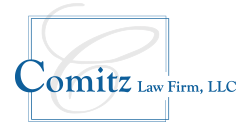 Administration of an estate involves the management of the assets and liabilities of someone who has died. Typically, a will designates a personal representative (executor) to administer the estate. If an executor isn’t named, the court will appoint an administrator, who serves as the personal representative.
Administration of an estate involves the management of the assets and liabilities of someone who has died. Typically, a will designates a personal representative (executor) to administer the estate. If an executor isn’t named, the court will appoint an administrator, who serves as the personal representative.
There are three ways that assets can pass to surviving heirs:
Operation of law
This occurs when a decedent owns an asset with another person as joint tenants with a right of survivorship. The surviving joint tenant will automatically take ownership of the jointly owned property when the other owner dies.
Beneficiary designations
Some assets allow the owner to name beneficiaries who will receive that asset upon the death of the owner. Common assets with beneficiary designations include life insurance, IRAs, 401(k)s, and other retirement accounts.
Probate
If the asset does not pass by operation of law or through a beneficiary designation, it must pass through the estate of the deceased individual. Probate is the process by which estate planning documents such as wills and trusts are executed after death.
The estate must be “opened” at the Register of Wills office in the county where the decedent resided at the time of death. Once the will has been probated (proven to be authentic), the Register of Wills will issue a document called “Letters Testamentary”. This gives the executor the authority to act as representative of the estate.
Pennsylvania intestacy succession
The will determines who is to receive the estate assets (the beneficiaries). When there is no will, Pennsylvania intestacy law will determine who receives the assets.
If the decedent had:
This happens:
Children but no spouse
Children inherit everything
Spouse but no descendants or parents
Spouse inherits everything
Spouse and descendants from you and that spouse
Spouse inherits the first $30,000 of your intestate property, plus 1/2 of the balance; your descendants inherit everything else
Spouse and descendants from you and someone other than that spouse
Spouse inherits 1/2 of your intestate property; descendants inherit everything else
Spouse and parents
Spouse inherits the first $30,000 of your intestate property, plus 1/2 of the balance; parents inherit remaining intestate property
Parents but no spouse or descendants
Parents inherit everything
Siblings but no spouse, descendants, or parents
Spouse inherits the first $30,000 of your intestate property, plus 1/2 of the balance; your descendants inherit everything else
Duties of the personal representative
In addition to protecting and distributing the estate’s assets, duties of the executor/administrator can include, among others:
- communicating with heirs or beneficiaries
- locating all creditors
- paying all debts (using estate funding)
- paying all applicable taxes (using estate funding)
- receiving payments owed to estate
- making necessary payments such as mortgages
- filing any necessary tax returns
- reviewing decedent’s insurance policies to ensure adequate property coverage
- cancelling credit cards
- closing bank accounts or setting up new ones to handle estate’s finances
- filing a final account
Executors of a will has a fiduciary duty to act in the best interest of the estate. The executor must distribute assets according to the terms of the will.
The administration of an estate can be a complex proceeding. If you need assistance with the probate process or another facet of estate administration, call Comitz Law at 570-829-1111 or email info@comitzlaw.com.


